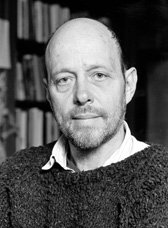A highly recognized social scientist, James Scott is the Sterling Professor of Political Science and Professor of Anthropology at Yale University. He is also the founding director of the Agrarian Studies Program at Yale and a Professor in its School of Forestry and Environmental Studies. Professor Scott’s scholarship has spawned fields of social scientific research through revelatory, detailed studies of how material and discursive manifestations of state systems assume new forms and roles as citizens reshape and resist them to fit the demands and contours of everyday life. More recently, Scott has sought to inspire a creative reinvigoration of daily life and work by illuminating ways that political innovations of ordinary citizens have created spaces of cooperation, justice, and freedom. He is one of the world’s leading scholars of Political Anthropology and a passionate activist on behalf of the people of Southeast Asia.
Scott’s book Weapons of the Weak (Yale 1985), a study of power relations in a Malaysian village, became a foundational concept in the emerging scholarship of resistance. He demonstrated how poor peasants subverted custom and ritual in subtle, yet unmistakably readable ways in order to defend their place in rural hierarchy and to resist their subjugation by wealthy neighbors. It became a key work in the study of grassroots politics, resistance, and hegemony. Scott further developed these ideas about ways ordinary people recodify and delimit hierarchies of power in his next book, Domination and the Arts of Resistance (Yale 1990), which also furnished new terms for the social science lexicon. Here, Scott shows how to listen for hidden resistance among those whose lives are less thoroughly documented. His next major book, Seeing Like a State (Yale 1998), asks what modern states do and why. Using examples as broad-ranging as Lenin’s Soviet Union, Nyerere’s Tanzania, the grand projects of Le Corbusier, and German forestry, Scott offers a compelling analysis of “high modernism.” He shows how the state’s drive for order and knowledge—its attempts to make citizens legible—opens up room for resistance and disorder. States fail, in other words, as they overlook the vernacular and as their citizens refuse to conform to imposed order.
Scott’s research continues to explore further each of the strands important in his work: analysis of the state, the articulation of a case for study of resistance and of anarchism, and a reimagining of the history of mainland Southeast Asia. In addition, Scott has been active in supporting democratic opposition in Burma, working closely with minority communities in the Burmese uplands.
James Scott has been widely recognized for his research. He has received fellowships from the Guggenheim Foundation, the National Science Foundation, and the National Endowment for the Humanities. He has been a visiting professor or research fellow at numerous prestigious universities and organizations. Some of the major honors he has received are an honorary doctorate from the University of Uppsala, Sweden; the Fukuoka Asian Culture Prize, Japan; and the University of Copenhagen’s Ester Boserup Prize for Research on Development.


